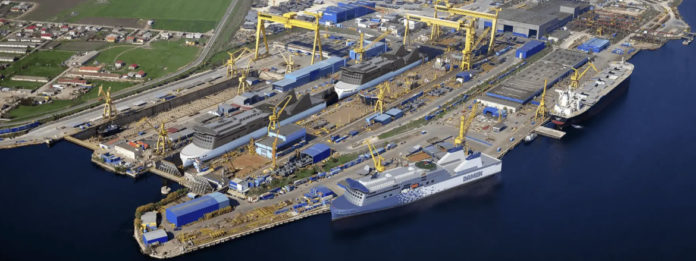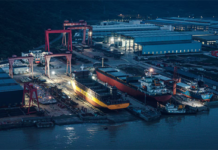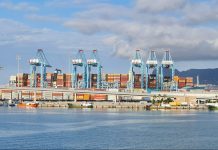

Amid increased volatility in the Black Sea, Mangalia shipyard is drawing interest from giants like MSC and Turkish shipbuilder Desan.
The timing is no coincidence as global shipping firms are actively seeking footholds in high-potential but underleveraged geographies, especially amid rising congestion, chokepoint instability, and fleet renewal needs.
The Black Sea forces the European Union (EU) to unveil the Black Sea Maritime Security Strategy, and the forthcoming Black Sea Maritime Security Hub represents a decisive pivot toward maritime resilience, commercial assurance, and regional cooperation.
This marks a clear departure from the past, positioning the Black Sea not only as a regional transit basin but as a strategic growth zone for global logistics and industrial expansion.
The case of Mangalia Shipyard, now under renewed scrutiny by MSC and Desan, is emblematic of how strategic infrastructure can quickly shift from insolvency to opportunity.
MSC’s interest in Mangalia, specifically to build cruise ships, Ro-Pax ferries, and tugboats, represents a forward-looking hedge amid ongoing shipbuilding saturation in Asia as the shipyard’s three large drydocks provide a readymade base for expanding European maritime industrial capacity.
EU and NATO strategic interests in Romania, bolstered by Black Sea security funding, could support infrastructure modernization through dual-use (civilian/military) shipbuilding partnerships.
Moreover, Romanian ports like Constanța already serve as critical gateways for Ukrainian exports, positioning the country as a pillar of EU maritime resilience and strategic autonomy.
Firms that anchor operations in Romania are now likely to gain first-mover advantage in a region where the security and economic architecture is rapidly evolving.
The Black Sea’s reorientation also has power-balancing implications.
As China expands its port presence from the Mediterranean to East Africa and beyond, and as the United States pivots more naval assets toward the Indo-Pacific, Europe’s eastern maritime flank must not be left behind.
MSC’s move could be interpreted as a private-sector parallel to EU strategy, securing operational influence in a geopolitically exposed area before it falls under either Chinese Belt and Road control or deteriorates further due to neglect.
At the same time, Turkey’s Desan bid reflects Ankara’s growing ambition to project regional shipbuilding power into neighboring zones.
It seems that the Black Sea is no longer a peripheral concern; rather, it’s becoming a maritime frontier of strategic, economic, and industrial transformation.





